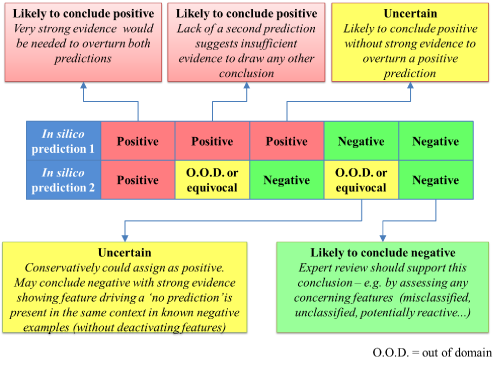Expert assessment is a fundamental part of the assessment of the mutagenic potential of impurities under the ICH M7 guideline and it makes a specific provision for the application of expert knowledge to support or overturn a (Q)SAR prediction. Whilst expert assessment has been successfully applied in this context, the definition of what constitutes expert analysis has been largely left open. In addition to this, attempts to create machine-learnt rules to automate the expert assessment process have not produced satisfactory results and expert assessment is required.
Chris Barber et al. have approached this subject in a paper entitled “Establishing best practise on the application of expert review of mutagenicity under ICH M7” in which they define a framework to more clearly understand the process of expert assessment. From relatively straightforward situations where both in silico methodologies agree to more complicated cases of model disagreement or “indeterminate” or “out of domain” predictions, the authors set out how the challenges of expert assessment can be approached. This approach is then put to the test with a series of worked example. Anyone with a role in the assessment of impurities under ICH M7 would find this paper a useful resource.

